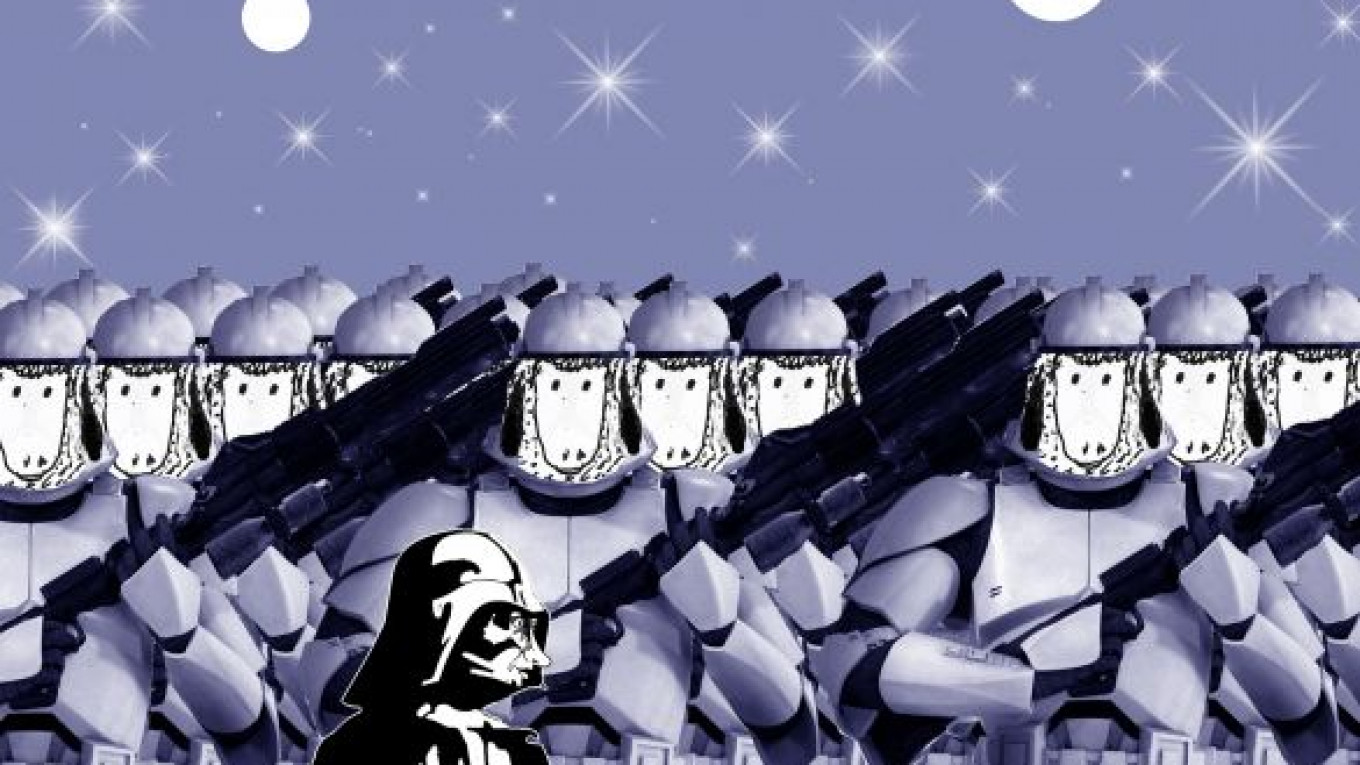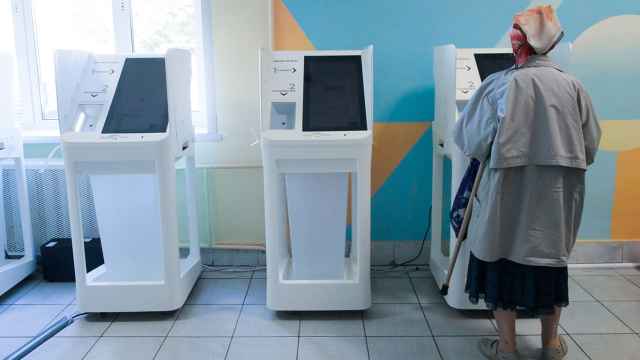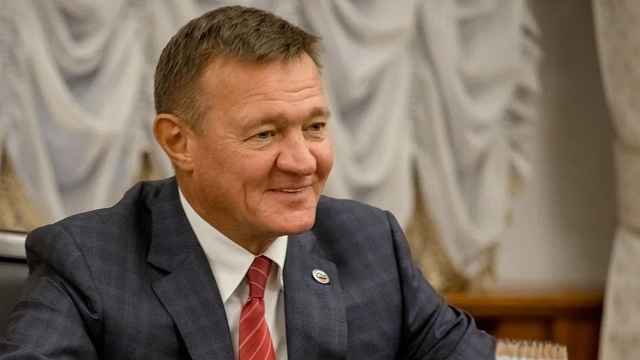Deputy Prime Minister Dmitry Rogozin has finally gotten his wish: Russian science has overtaken every other country by apparently figuring out how to clone a fully grown 18-year-old youth. How else would you explain President Vladimir Putin's recent order to Defense Ministry brass that the army should be fully staffed at 1 million men within two years?
The military would have to draft 600,000 conscripts annually to have 1 million men in uniform. That is the same number of men who turn 18 each year, and some sources predict the number will fall to as low as 470,000 within the next two years. That means every single 18-year-old male would have to be corralled into the army, including those with physical disabilities and chronic illnesses — and even that wouldn't be enough to reach the magic one-million mark. The only way around the problem would be to clone healthy 18-year-olds as quickly as possible.
The only real way to fulfill Putin's order is if the Defense Ministry fudged the numbers. That would explain why the ministry reacted favorably to the announcement by several college presidents that they agree to let students do a three-month stint in the army without interrupting their studies.
Putin's other requirements for the military would also take a miracle to fulfill. At the same meeting with the top brass, Putin ordered that modern weapons comprise 70 percent to 100 percent of all arms by 2020. But considering that modern weaponry represents only 20 percent of the current total and that assembly line production of the new systems has yet to begin, Putin would need a magician to pull that one out of the hat. It is all the more unrealistic considering that 60 percent of current weapons orders are plagued by violations of various types, according to the Defense Ministry, thus delaying delivery times even further.
Happily, there is a Kremlin-loyal magician at hand: Rogozin. One of the secrets behind his magic tricks was revealed during a recent report by the Audit Chamber to the State Duma Defense Committee. According to auditor Alexander Piskunov, the military brass reported that 99 percent of defense orders had been filled by simply adjusting the orders to match what was actually delivered. This required padding the number by inserting about 7,200 corrections.
As it turns out, Rogozin uses an ordinary ballpoint pen instead of a magic wand. But I suspect that even that numeric sleight of hand will look childish compared to the tricks that will invariably follow. Defense Minister Sergei Shoigu has said he will fully reject any role for the Defense Ministry in setting the prices for military equipment. "We should determine the tactical and technical characteristics of the weapons," he said, "as well as the quantity and the timeframe for their delivery to the troops but not the type and price of titanium, aluminum, cable and other components."
Several days ago, Rogozin announced that the Defense Ministry should only order those weapons that the defense industry is capable of producing. Under such conditions, giving the Industry and Trade Ministry full pricing authority for military hardware would be like willingly assuming the position of a Soviet shopper who is told as he enters the store, "Take whatever you find, but there's nothing here."
Putin is confident that, despite having dismissed Anatoly Serdyukov in November from his post as defense minister, he will be able to preserve the hard-won fruits of Serdyukov's reforms. "Of course, following a rigid formula is wrong," Putin said, "however — and I would like to emphasize this — constant flip-flopping and endless revisions of earlier decisions should not happen either."
In fairness, Russia is not returning to the Soviet concept of a mass-mobilization army. But the backsliding from Serdyukov's reforms has already begun. Military academies once again will have to report to the chief commands of the air, ground, airborne, navy and strategic missile forces. This will doom them to producing Soviet-type military tradesmen focused not on professional growth but on gaining competence on a single, outdated piece of military hardware. Education and warrant officers will return to the army — the very jobs that Serdyukov had wanted to eliminate above all others. This category of military personnel represents a throwback to some of the worst elements of the Soviet army and will likely lead to more political control and theft in the armed forces.
At the same time, however, Russian authorities haven't completely lost touch with reality. In fact, nobody is planning to ensure the security of the country with the aid of students who would serve one summer in the army. Shoigu has confirmed that the army will be able to sign up 425,000 professional soldiers by 2017. Some of them will be assigned to the airborne troops that are slated to become a wholly professional branch of the military. Vladimir Shamanov, head of the country's airborne forces, has proudly announced that he has been charged with forming 22 battalions — at least two divisions — of contract servicemen in the near future. The hope is that these rapid deployment forces should secure victory in local conflicts. Only Russia's nuclear forces would be capable of deterring a more serious opponent.
The hundreds of thousands of other military personnel would simply be window dressing to help Russia's leaders believe that Russia is still a great power.
Alexander Golts is deputy editor of the online newspaper Yezhednevny Zhurnal.
Related articles:
A Message from The Moscow Times:
Dear readers,
We are facing unprecedented challenges. Russia's Prosecutor General's Office has designated The Moscow Times as an "undesirable" organization, criminalizing our work and putting our staff at risk of prosecution. This follows our earlier unjust labeling as a "foreign agent."
These actions are direct attempts to silence independent journalism in Russia. The authorities claim our work "discredits the decisions of the Russian leadership." We see things differently: we strive to provide accurate, unbiased reporting on Russia.
We, the journalists of The Moscow Times, refuse to be silenced. But to continue our work, we need your help.
Your support, no matter how small, makes a world of difference. If you can, please support us monthly starting from just $2. It's quick to set up, and every contribution makes a significant impact.
By supporting The Moscow Times, you're defending open, independent journalism in the face of repression. Thank you for standing with us.
Remind me later.







